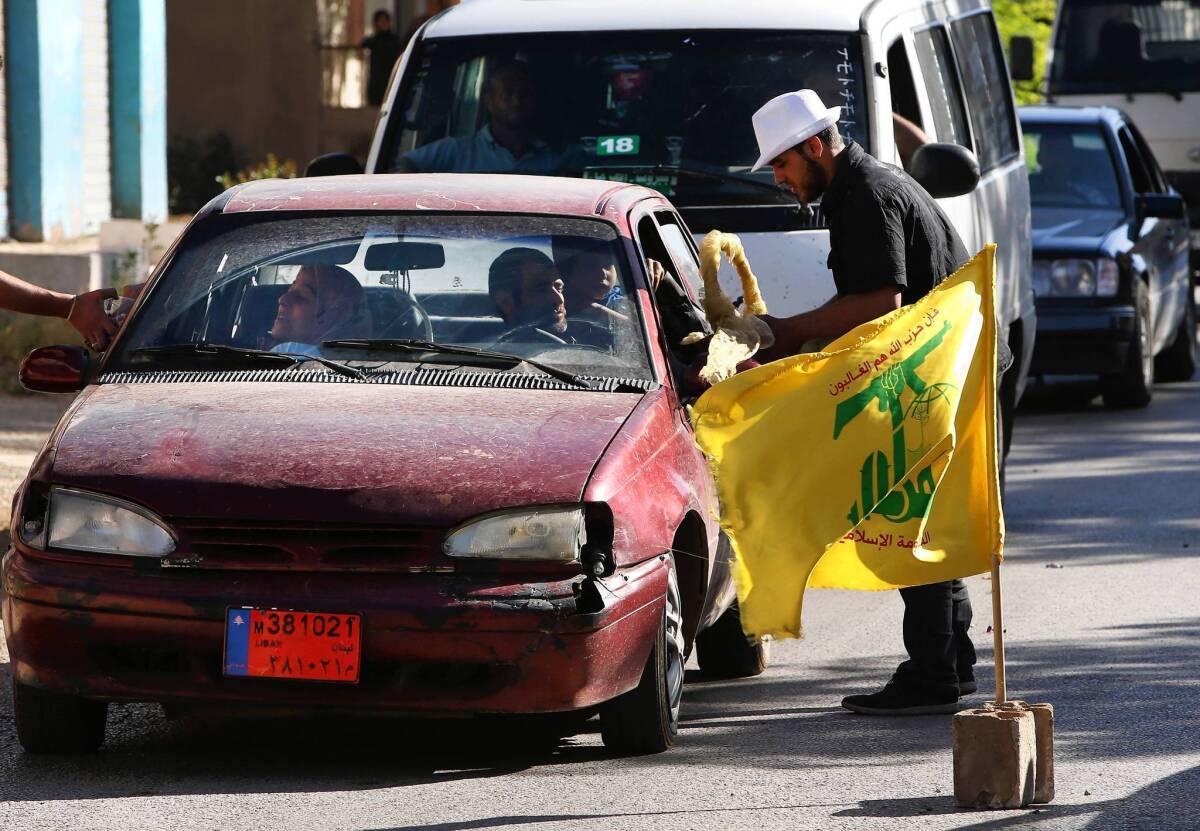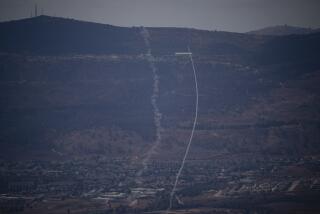Hezbollah fighter tells of Syria battle

BEIRUT — He sits on a couch in an inconspicuous building in a southern suburb of Beirut. A baseball cap pulled down low, his eyes twitching, Hassan, a Hezbollah squad leader, describes killing more than 20 men in three weeks in the Syrian town of Qusair.
“It was a street war. We went from room to room, from house to house, from window to window,” said Hassan, who is in his late 30s and sports a light beard. “It was guerrilla warfare with gangs, not a war with a traditional army.... So it needed a bit more work. It brought more fatigue. You want to deal with these people as they are dealing with you.”
Hassan, who asked that his last name not be used because he’s not authorized to talk to the media, is at the forefront of Hezbollah’s increasing involvement in the Syrian civil war. His account could not be independently verified but was consistent with other reports on the fighting in Qusair.
The Lebanon-based Shiite Muslim militant organization has aligned itself with embattled Syrian President Bashar Assad’s troops against rebel factions composed mostly of Sunni Muslims.
Assad’s forces would probably not have retaken Qusair if not for the help of Hezbollah. But that relationship is risky for the militant group, which faces the prospect of triggering intensified sectarian tensions in Syria and at home in Lebanon. Nonetheless, fighters like Hassan say they are convinced that the role of Hezbollah, an ally of Iran as well as the Syrian government, is in line with a wider strategic battle against the United States, Israel and Al Qaeda.
Hassan said he was responsible for commanding five Hezbollah squads, each consisting of teams of a few fighters, in the grinding battle for Qusair. In the neighborhood where he was stationed, he estimated, there were about 120 Hezbollah fighters hunkered down along piles of rubble and bomb-pocked streets and alleys.
Hassan said his squad, which worked near Syrian forces but received its orders from top Hezbollah commanders, battled rebels affiliated with Al Nusra Front, a Sunni militia with links to Al Qaeda. Four of his men were killed and the fighting prolonged because Hezbollah engineers had to be called in to clear land mines, he said.
Hassan returned home Wednesday, the day Syrian troops announced victory in Qusair, a strategic town that lies on a cross-border supply route with Lebanon and connects Syria’s capital, Damascus, with loyalist strongholds on the Mediterranean coast.
Hassan speaks of alleged plots involving foreign-funded Islamist rebels and U.S.-Israeli conspiracies aimed at “hitting the resistance” — Hezbollah — and dividing Syria.
“The project they were working on failed,” he said of his enemies. “We are one united axis that runs from Iran, Syria, Lebanon, Iraq and down to Gaza.”
Hezbollah has taken on a more public role in the Syrian conflict since its leader, Hassan Nasrallah, recently announced the group’s involvement. The squad leader said Hezbollah was bracing for possible revenge attacks from supporters of the Syrian rebels in Lebanon.
Thousands of Sunni fighters from across the Arab world and elsewhere are said to be fighting on the rebel side. Hassan said he came across many Arab fighters in Qusair, especially from Libya and Tunisia. There were also “blonds,” he said, describing fighters from places such as Canada, the former Yugoslavia and elsewhere in Europe.
Hezbollah technicians managed to hack into the radio communications network of some rebels, he said. Hezbollah fighters started shouting “Game over” and “One-way ticket” in English and also some phrases in French into the radio so non-Arabic speakers would get the message.
Hassan said he expected to be sent on a new mission to Syria in coming days. He doesn’t know where. Potential destinations could be Aleppo and Idlib provinces or the fringes of Damascus, he said.
“Hezbollah can’t cover all of Syria,” he said. “Those who say Hezbollah is all over [Syria] are stupid. You have some strategic places.”
One of those is the Shiite shrine Sayyida Zainab, which Hassan said he has been protecting on and off for months from Sunni militants who want to destroy it to ignite an Iraq-style sectarian war. He said the fighting was heavy each day he was stationed at the shrine.
Hassan said that for him, the battle goes on “until the last breath.” It is a fight, he said, that cannot be lost to Hezbollah’s many enemies, including the United States.
“I love the fighting,” he said. “You are doing something you are convinced of. You are not being paid money to go. There is a difference.”
Special correspondent Sandels reported from Beirut and Times staff writer Fleishman from Cairo.
More to Read
Sign up for Essential California
The most important California stories and recommendations in your inbox every morning.
You may occasionally receive promotional content from the Los Angeles Times.











